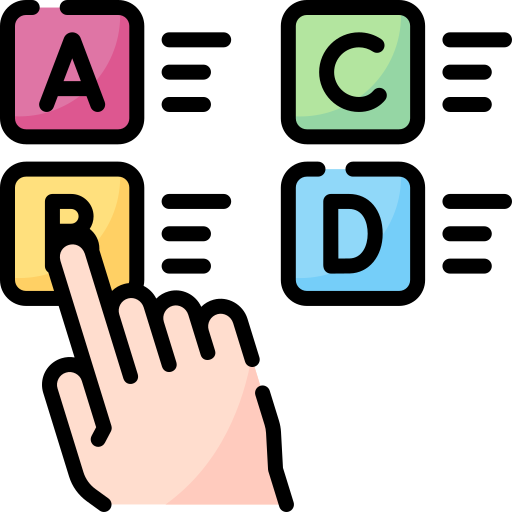Have you ever found yourself haggling over the price of an item at a market? Remember how you felt afterwards, knowing that you got what you wanted? And the vendor was probably happy, too, because they made the sale!
 Photo by Florian Wehde on Unsplash
Photo by Florian Wehde on UnsplashNegotiation skills are not only important in our daily lives but also in the workplace. From bargaining for a better deal to resolving conflicts with coworkers, the ability to use your negotiation skills effectively can change the outcomes from negative to positive.
Case Study: Scheduling Conflict
 Photo by Marcel Heil on Unsplash
Photo by Marcel Heil on UnsplashYou work in a fast-food restaurant. One day, you discover that you have a schedule conflict with a coworker, John, who is also assigned to work during your preferred shift.
Both of you have personal commitments that make it difficult to change your availability. You decide to adopt techniques to resolve the issue with negotiation skills.
1. Communication
Effective communication is the foundation of successful negotiations. It allows you to express your ideas clearly and understand others' perspectives.

The Power of Effective Communication

Be a good listener.
Pay attention to the speaker.
Maintaining eye contact.
Focus on the message the speaker delivers.

Ask probing questions.
Dig deeper and uncover interests and needs that might not be immediately apparent.
For example:
"What specific aspects of this project are most important to you, and how can we find a compromise that meets both of our priorities?"
Persuasive Language and Non-Verbal Cues

Use persuasive language.
Frame your ideas and requests in a way that appeals to the interests of other parties. Example:
"Join our team! We will provide you with valuable skills and experiences that will enhance your future career opportunities."

Use non-verbal cues such as:
body language
facial expressions
tone of voice
to convey confidence, trustworthiness, and openness.
 Case Study
Case Study
To address the schedule conflict, you talk with John respectfully. You clearly express your concerns and the reasons behind your request for the preferred shift. You also actively listen to John's perspective and any commitments he has.
2. Emotional Intelligence
Emotional intelligence is the ability to recognize, understand, and manage your emotions and the emotions of others.
 Photo by Tengyart on Unsplash
Photo by Tengyart on UnsplashUnderstand and Manage Your Own Emotions
You can make rational decisions and avoid letting emotions drive the negotiation process, only when you stay calm and focused.
Recognize and acknowledge your emotions.
Take a pause and breathe to calm yourself.
Reflect on the root cause.
Practice self-awareness to understand why you're feeling a certain way.
Recognize and Understand the Emotions of Others
You can understand others' feelings and motivations if you actively listen and observe their body language.
After that, you should respond appropriately, empathize with their concerns, and find mutually agreeable solutions.
 Case Study
Case Study
During the negotiation, you recognize John also has personal obligations and may be facing difficulties similar to yours. You show your empathy which helps create a positive atmosphere that encourages both of you to work towards a resolution.
3. Value Creation
Negotiation focuses on creating value for all the parties involved.
 Photo by Alexander Grey on Unsplash
Photo by Alexander Grey on UnsplashIdentify Shared Interests

Shared interests are the common goals or needs that both parties have in a negotiation.
When you find common interests with your coworkers, it helps you build better relationships, work together more effectively, and create a positive and friendly work environment.
Find Mutually Beneficial Solutions

By exploring various possibilities and considering different perspectives, you build trust and improve teamwork.
This creates a happier work environment, where everyone feels valued and motivated to perform their best.
 Case Study
Case Study
You focus on finding a solution that can benefit both of you. For example:
swapping shifts with another coworker
adjusting break times
finding additional coverage for the conflicting shift
Quiz

You work as a cashier in a busy supermarket, and you notice that there is a recurring issue with the distribution of work hours among the cashiers.
Some cashiers consistently receive more desirable shifts, while others are left with less desirable shifts. Some cashiers feel dissatisfied and feel that the schedule is unfair.
You have brainstormed 4 options to handle this issue:
Option A: Ignore the issue and hope it resolves itself over time.
Option B: Escalate the issue to the supervisor or HR.
Option C: Initiate a group discussion among the cashiers to openly address the issue and collectively find a fair distribution of shifts.
Option D: Speak individually to the cashiers who receive more desirable shifts and request that they share their shifts more evenly.
Quiz
What is the best way to handle this situation?
Take Action

Communication, emotional intelligence, and value creation will contribute to your success when you need to negotiate with coworkers. Keep practicing and refining your negotiation skills, and watch your effectiveness soar!
Your feedback matters to us.
This Byte helped me better understand the topic.


